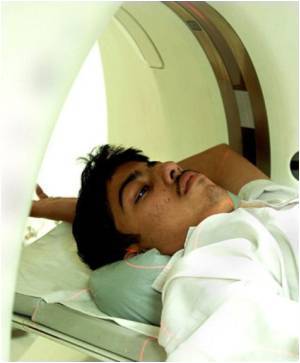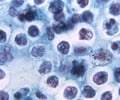Efforts are on to counter the toxic effects of radiation, and find an effective way to neutralize cell damage caused by excess exposure.

People who receive a lethal dose of radiation as in the setting of an accidental exposure die of bone marrow failure. While there are a few drugs that will decrease toxicity when given before exposure to radiation ("radioprotectants"); currently, no effective therapy exists to mitigate bone marrow toxicity of radiation when given after radiation exposure ("radiomitigants").
Now a team led by UNC Lineberger Associate Director for Translational Research, Norman Sharpless, has provided a first example of successful radiomitigation in mammals.
The investigators found that oral treatment of mice with a drug that inhibits enzymes involved in cell division caused certain groups of bone marrow cells to temporarily stop dividing (which they termed 'pharmacological quiescence' or PQ).
Several decades of work have shown that cells which are not dividing are resistant to agents that damage DNA, like radiation.
Workers in the Sharpless lab were then able to show that the induction of PQ immediately before or up to 20 hours after radiation exposure were able to protect mice from a lethal dose of radiation.
Sharpless, who is an associate professor of medicine and genetics at UNC's School of Medicine, said: "We believe this study is really exciting. We have identified a simple, non-toxic pill that decreases radiation toxicity even when given after radiation exposure. We believe this approach could be of use in humans who are accidentally or intentionally exposed to lethal doses of radiation."
Related drugs have been used extensively in humans with cancer, and CDK4/6 inhibitors are currently being tested in humans. Importantly, these drugs can be given as a pill, are chemically stable and have little toxicity.
Therefore, such compounds could be stockpiled for use in the setting of an unexpected radiological disaster. The group showed that structurally different versions CDK4/6 inhibitors provided protection from radiation, whereas other types of kinase inhibitors did not.
Sharpless believes PQ may have a role in treating patients with cancer. Radiation is used in cancer therapy, and therefore PQ might benefit such patients.
Also, several commonly used chemotherapy drugs cause bone marrow toxicity by damaging DNA, and therefore PQ might protect from chemotherapy toxicity in addition to radiation toxicity.
The study appears in the Journal of Clinical Investigation
Source-ANI
 MEDINDIA
MEDINDIA




 Email
Email





